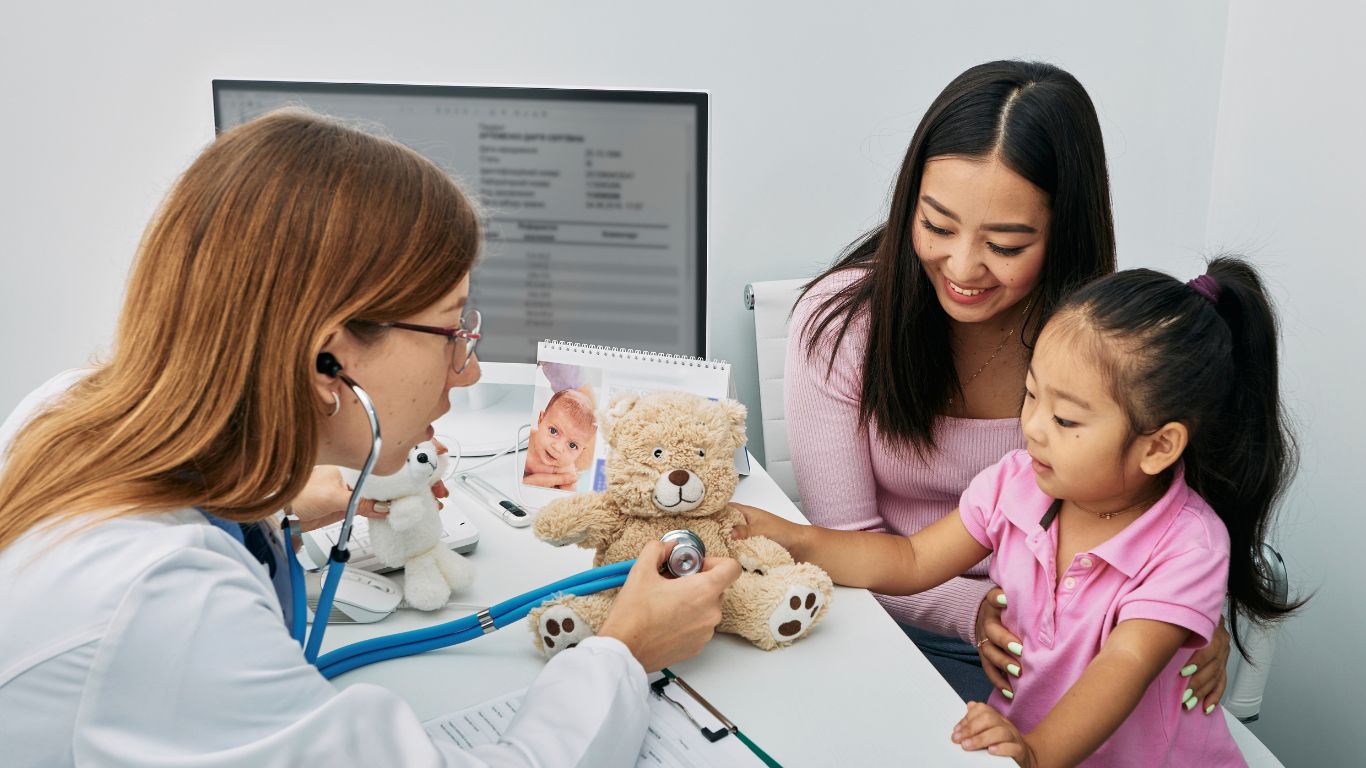 Comprehensive Pediatric and Neonatology Care at VRA Health – Trusted Child Specialists for Every Stage
Comprehensive Pediatric and Neonatology Care at VRA Health – Trusted Child Specialists for Every Stage
At VRA Health, our Pediatrics and Neonatology Department is dedicated to providing expert medical care to infants, children, and adolescents. Led by experienced pediatricians and neonatologists, we ensure your child’s health is in the best hands—from birth through teenage years. Whether it's newborn care, childhood vaccinations, or managing complex medical conditions, our compassionate and evidence-based approach keeps both parents and children at ease.
Why Choose a Pediatrician or Neonatologist?
A pediatrician is a medical specialist focused on the physical, mental, and emotional well-being of children from birth to 18 years. A neonatologist is a highly trained pediatrician who specializes in caring for newborns, especially premature babies or those with complications at birth.
Together, these specialists play a crucial role in growth monitoring, early detection of developmental delays, nutritional guidance, and infection management during a child's critical years of development.
When Should You Consult a Pediatrician?
You should book a consultation with a child specialist if your child is experiencing:
-
Fever, cough, or recurring infections
-
Feeding or weight gain concerns in infants
-
Delayed milestones or speech
-
Skin rashes or allergies
-
Digestive issues such as constipation or vomiting
-
Behavioral or sleep disorders
-
Breathing difficulties, wheezing, or asthma-like symptoms
-
Concerns about vaccination or growth
Early diagnosis and age-appropriate care make a lasting difference in a child’s health and future.
Services Offered in Our Pediatrics and Neonatology Department
Newborn Care and Neonatal Follow-up
Our neonatologists provide specialized care for premature babies, low birth weight infants, or those with neonatal complications, ensuring smooth transitions from hospital to home.
Routine Child Health Check-ups
Our pediatricians perform regular growth and development assessments, track height, weight, and head circumference, and evaluate nutritional status to ensure your child is growing well.
Vaccination and Immunization
We follow the latest IAP and WHO vaccination schedules, offering guidance on all mandatory and optional vaccines to protect children from life-threatening diseases.
Management of Common Childhood Illnesses
From fever, cold, and cough to gastroenteritis, UTIs, and skin infections, we ensure accurate diagnosis and safe treatment tailored to your child's age.
Pediatric Asthma and Allergy Management
Specialized care for children with breathing issues, wheezing, or seasonal allergies with long-term asthma action plans.
Developmental and Behavioral Pediatrics
Assessment and support for children with suspected autism, ADHD, learning delays, or emotional issues.
Special Focus on High-Risk Newborns
Our neonatology team manages:
-
Prematurity care and NICU graduates
-
Neonatal jaundice, feeding difficulties, and infection monitoring
-
Follow-up care for high-risk infants
-
Guidance for parents on nutrition, development, and home care
Online Pediatrician Consultations at Your Convenience
VRA Health also offers online pediatric consultations, allowing you to speak to a certified pediatrician from the safety of your home. Perfect for follow-up visits, minor illnesses, or vaccine queries, our platform ensures trusted care with just a few clicks.
Why Parents Trust VRA Health for Pediatric and Neonatal Care
-
Experienced pediatricians and neonatologists with hospital-based expertise
-
Child-friendly environment and communication
-
Timely vaccination reminders and well-baby follow-ups
-
Coordination with specialists for complex or chronic pediatric conditions
-
Seamless access to lab tests, imaging, and pediatric pharmacy support
-
Transparent, parent-inclusive decision-making
Testimonials
"Dr. Uma at VRA Health guided us through every stage of our baby’s early months—from vaccination to nutrition. We couldn’t be more grateful."
– Ramesh & Sneha, Hyderabad
"My premature baby received excellent care from the neonatology team. The regular follow-ups and clear instructions gave us so much confidence."
– Meera S., Secunderabad
Book Your Pediatric Consultation Today
Your child’s health deserves early and expert attention. From newborn screening to teenage health, our pediatric team offers trusted care that evolves with your child’s needs. Don’t wait—book a consultation with our experienced pediatrician or neonatologist today.
Schedule a Pediatric Consultation

